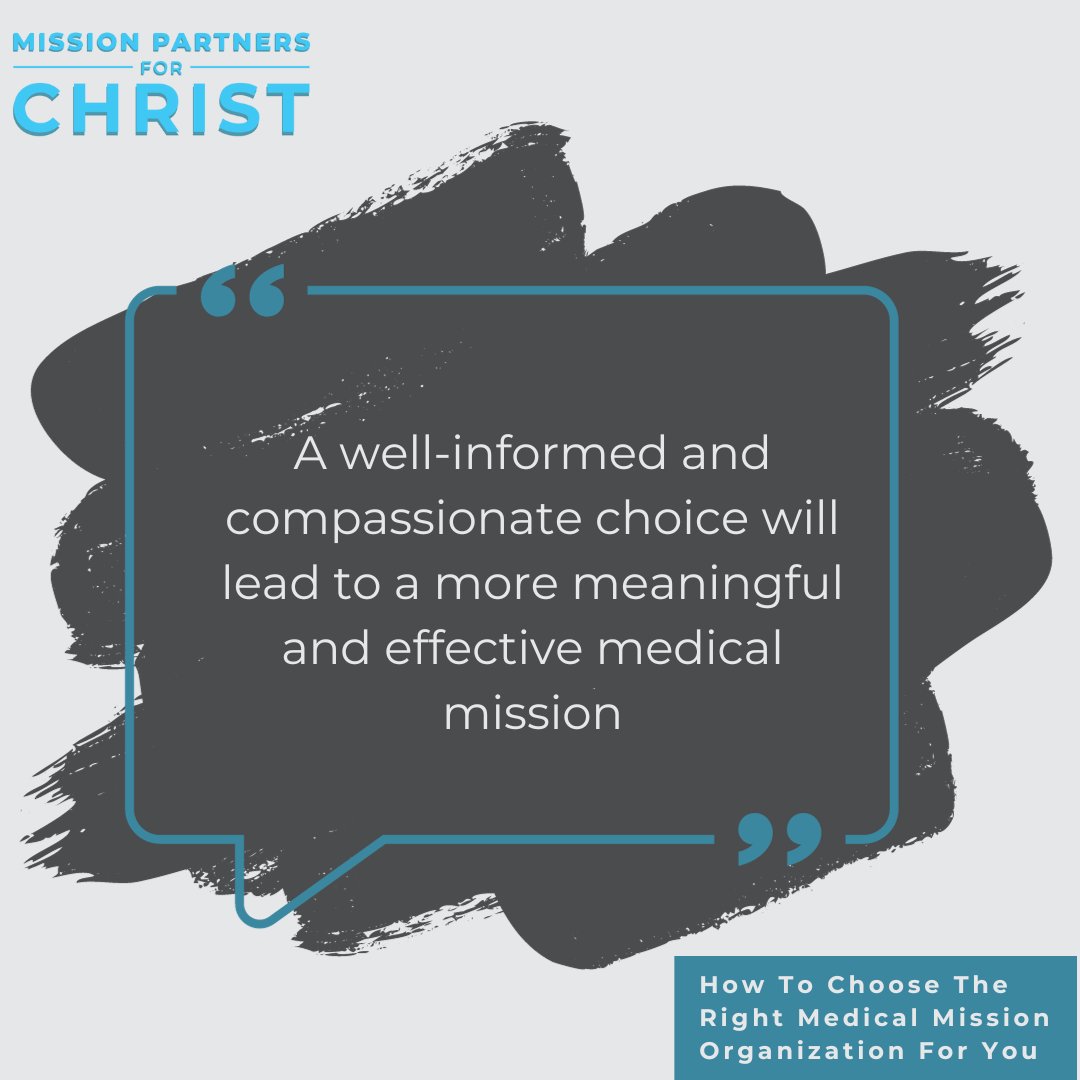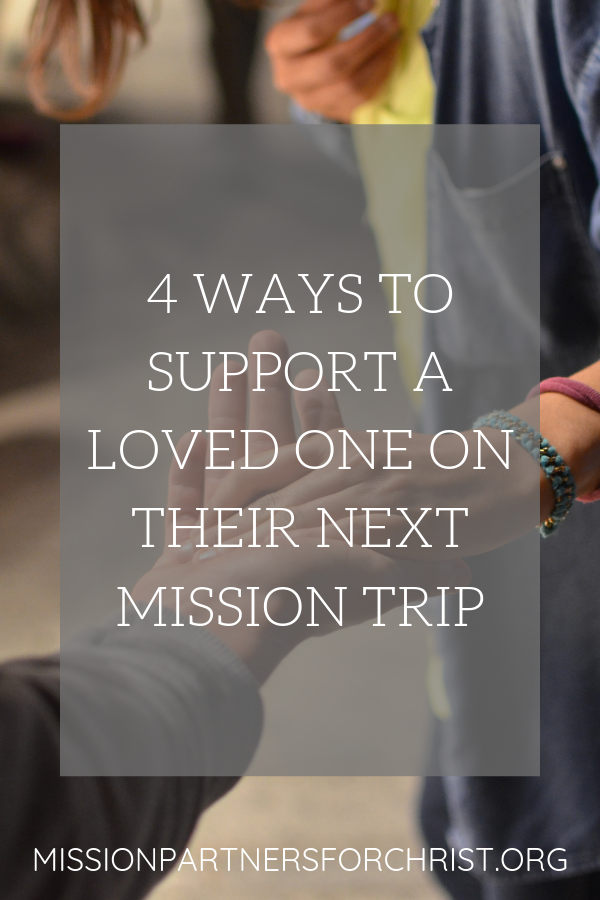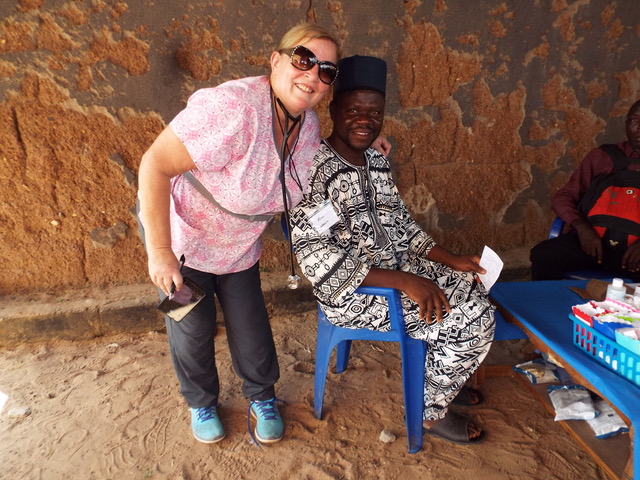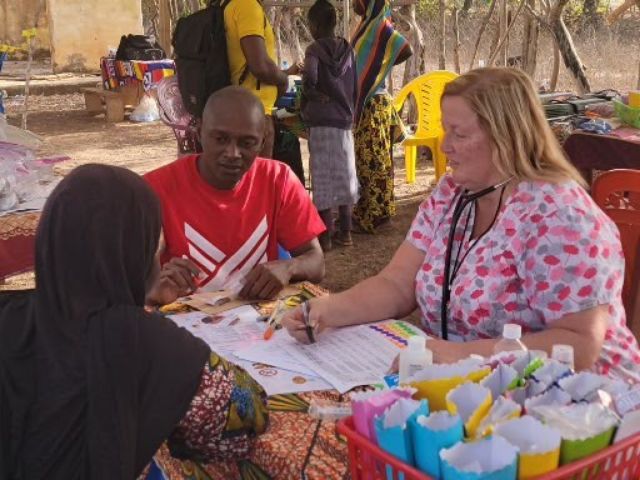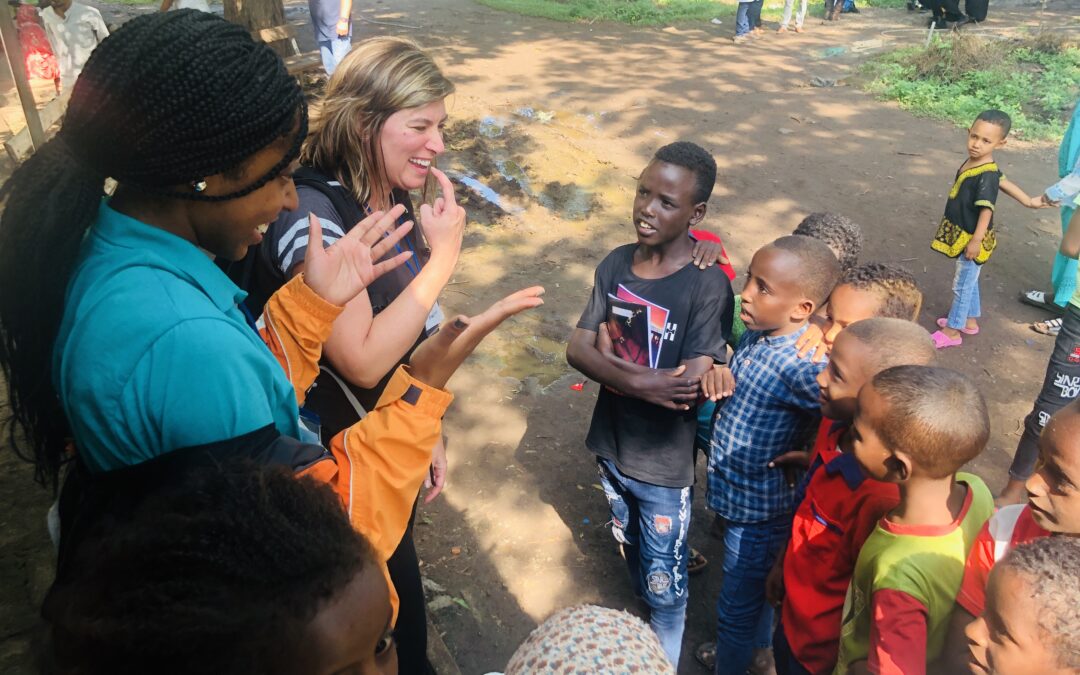
by Mission Partners For Christ | Feb 23, 2024 | Make a difference
Are you longing to serve on the missions fields and unsure how to begin?
That’s a great goal for life–wanting to serve. Wanting to serve in any place will train you to serve on a missions trip in some ways you might not expect. It all begins with the willingness to ask God good questions in prayer and then start to serve in the best ways you know how to do right where you are.
How do you wash a dish in the sink or dishwasher at home–is it done with love and care for the next person who will use the dish? How do you speak with your coworkers about critical matters during high-pressure moments? Do you maintain your composure and stay focused on the task and care for people while remaining alert to the Holy Spirit?
Do you remember young Samuel when he ran to Eli as God called on him because he thought it was Eli calling for him? That’s a willing heart. He wanted to see what Eli needed, so he got up to go to him (1 Samuel 3:1-21). We can be like this.
You are stronger than you know!
Many people don’t realize they already are servant-leaders in the making or they are already making a difference in that way.
Every time we accept responsibility for something, commit to it, and see it through–that is service and leadership in action. Doctors and nurses who studied, prepared themselves, and practiced all they would need to in order to become medical professionals are one example of this. Students and parents who learn how to fundraise for their friends’ mission trips and go out in the community to help make it happen are another example.
We so often hear words like “leadership” or “service” and perhaps think it will involve the more difficult types of work that we feel unprepared for or not called to do, and sometimes it might be more difficult, but not necessarily something we’re not called to do. God will give you strength and grace for it. He allows you to go into challenges that will build character and other traits, so there is no need to feel we are too weak or unknowledgeable to improve our leadership skills and enlarge our servant hearts.
You know more than you think you do!
Younger or older, you have knowledge and experience others do not have. Your specific way of seeing a need and filling it might differ from someone else’s way, but when it’s paired with a group of people intently focused on serving others and leading themselves with honor and love, it’s boosted–and it might boost what others are doing too. So don’t be afraid to come off the sidelines and volunteer to go support a mission’s trip in some way. You might be surprised what you can learn, how you will grow, and how others around you will learn and grow too.
What are you waiting for?
There is plenty of work to be done all over the world, so if you’re ready, you can begin. You don’t have to wait till you’re a great dishwasher or communicator to go on a mission’s trip, by the way. You just need a willing heart and faith. If you’re interested in learning more about our upcoming 2024 destinations, have a look here.
Do you need some questions answered before you say yes? We’d love to answer your questions about joining our team. Click here to submit your question via our contact page. We will get back with you as soon as possible!
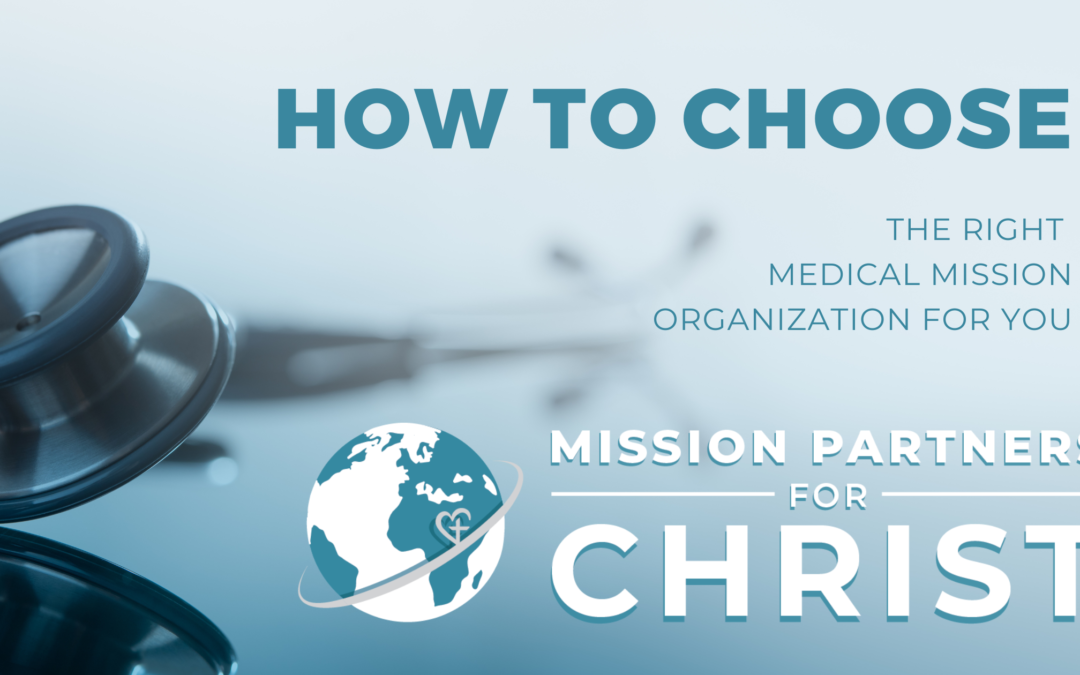
by Mission Partners For Christ | Feb 16, 2024 | Medical Mission Trips
Embarking on a medical mission can be a deeply fulfilling experience, allowing healthcare professionals and volunteers to make a significant impact on underserved communities. However, choosing the right medical mission is crucial to ensure that your skills, values, and goals align with the needs of the communities you intend to serve.
In this blog post, we will discuss the various ways that you can tell if a medical missions organization is a perfect fit for you.
Self-Assessment
Before you start searching for medical missions, take some time for introspection. Ask yourself the following questions:
- What are my medical skills and qualifications?
- How much time do I have to offer for a mission trip?
- What languages do I speak, and can I communicate effectively with the local population?
- What are my personal values and beliefs when it comes to healthcare and community service?
Working through this lis of questions can be helpful as you research each short-term medical mission organization. As you learn more about your own needs and what you have to offer, you will begin to see which missions organization could be the best fit for you.
Research and Align with Your Values
Different medical missions may have varying philosophies, goals, and approaches. Research organizations and missions carefully to ensure that their values align with your own.
Some missions organizations may downplay the importance of long-term growth under local leadership in favor of the immediate fix of “saving” a certain community. Some mission groups do not consider the culture in which they are serving, which can do more harm than good.
If you do not take the time to carefully consider where your values actually lie, you may find yourself serving on a team that you regret volunteering with.
Look for missions that prioritize sustainability, culturally sensitive practices, and long-term impact. Remember, a shared mission and vision will make your experience more meaningful.
Seek Transparency and Accountability
Choose an organization that is transparent about its operations, finances, and impact.
Look for those that can provide evidence of their work and their commitment to accountability. Reputable organizations will have clear guidelines for volunteers and an established track record of success.
Mission Partners For Christ’s finances can be found on our GuideStar profile. You can also find volunteer testimony and mission trip updates sprinkled throughout our blog.
Hear from Rosemary
Hear from Dr. Kim
Hear Updates From Togo
Hear Updates From Burundi
Network and Seek Recommendations
Reach out to fellow healthcare professionals and volunteers who have participated in medical missions. They can offer valuable insights and recommendations based on their experiences. Join online forums or social media groups dedicated to medical missions to connect with like-minded individuals.
If you would like to speak with a medical professional who has volunteered with Mission Partners For Christ in the past, be sure to use the Contact Us form, and someone will contact you.
Training and Preparation
Once you’ve chosen a medical mission, invest time in preparing yourself. Attend any required training sessions, brush up on local customs and medical practices, and ensure you are up-to-date with vaccinations and travel requirements.
For medical mission team training, Mission Partners For Christ holds 2-3 Zoom training events, which all volunteers are required to attend. There, we will discuss any important information that you will need to know to join us in the field. We will often also read Scripture as a group and pray together – these events are foundational in building a sense of togetherness for all the members of our teams.
Choosing the right medical mission is a critical step in ensuring a fulfilling and impactful experience. By conducting thorough research, aligning with your values, understanding community needs, and seeking transparency, you can select a mission that not only benefits the underserved but also enriches your own life.
Remember, a well-informed and compassionate choice will lead to a more meaningful and effective medical mission.
Curious to learn more about our medical mission trips? Hop on over to our volunteer page and learn more!

by Mission Partners For Christ | Feb 9, 2024 | How to Prepare
You’ve just heard from a good friend that they booked their first mission trip. This is exciting news, but how do you best support them?
Raising funds, arranging travel, and serving during a mission trip itself can be emotionally and mentally exhausting, so the support of friends and family during this time is crucial. Here are four ways you can support your loved one on their journey:
1. Pray For Their Mission Trip
Prayer is probably one of the most important things you can do to support your friend or loved one during their trip! As Christians we know that prayer can move mountains. Don’t know what to pray for specifically? This post offers 31 ways to pray for missions.
2. Encourage Them
Being your friend’s greatest supporter will go a long way towards easing their fears of the unknown, and help them feel encouraged. A simple text message letting them know how proud you are of them will be enough to lift their spirits when the going gets tough. For an added dose of encouragement, consider sending a care package with them filled with notecards containing a scripture and encouraging word for them to open on each day of their trip.
3. Give Financially
You simply can’t go on a missions trip without funding, so supporting your loved one’s trip financially can be one of the best ways to help! Even if you can only give $5, every little bit counts.
4. Spread The Word About Their Mission Trip
Another way to help financially is to spread the word about your friend’s trip for them to help raise funds! When people are personally connected to a cause they are more likely to give, so share away! Every Mission Partners For Christ participant has a personal fundraising link- be sure to ask you friend if you can share with your network!
What about you? What would you add to this list? Let us know in the comments. The more we support others with their mission work, the more people we can serve around the world!
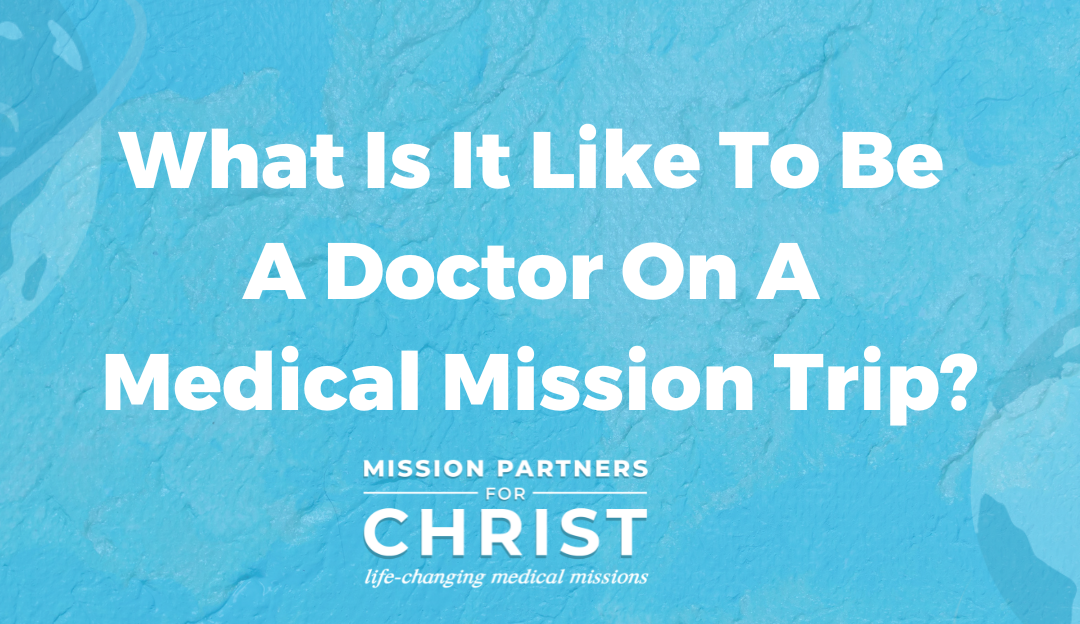
by Mission Partners For Christ | Feb 8, 2024 | Medical Mission Trips
Are you a medical professional who has been curious about what it’s like to serve with Mission Partners For Christ in the mission field? Today, Dr. Kimberly Hagerman wants to share her story. She has given us permission to share this here on the blog and she’s offered to speak to anyone who may want to learn more. Message us via the contact form if you would like to reach out.
If you are a healthcare provider considering going on a short term mission trip, 2024 is the time to go.
Mission Partners For Christ is the easiest way to serve. Sheri sets up the clinics with help from local leaders. She does all the leg work. Providers just need to use their skills to provide basic medical care, share the love of God and show your love of others.
After my first trip , I felt inadequate. I wondered how vitamins, Tylenol and a brief interaction could improve anything for the local people. Satan placed a lot a doubts in my mind.
But God wins!
We have kept in contact with the pastor who was the local contact. I have heard multiple stories of lives changed. A church has been established in one of the small villages. Many have come to know Christ. We are making a difference.
I feel the need to continue to serve on short term mission trips. I am a primary care physician. I can provide healthcare, education and love to the local people and so can you. I don’t have any special training in tropical medicine and I only speak English, but God is using me.
Why Should Doctors Commit To Serving?
You only need your stethoscope and the knowledge you use everyday. You will have a translator to assist you with every patient. You don’t need to learn about new diseases or medications. Local physicians travel with us to provide assistance with any challenges.
You can provide education about basic hygiene, nutrition and sanitation that will change lives forever.
While you are providing for healthcare needs, you have the opportunity to share the Gospel to many who have never had the opportunity to hear about Jesus.
The villages are changed forever.
Local pastors and leaders follow up with the new believers to help them grow in faith. Clean water saves lives.
Are You Ready To Take A Leap Of Faith?
Sign up now to join us in Zimbabwe July 12-21, 2024. Our spaces for non-medical personnel have been filled.
Our greatest need right now is for nurses, physician assistants, nurse practitioners and doctors.
Will you help change a life this summer?
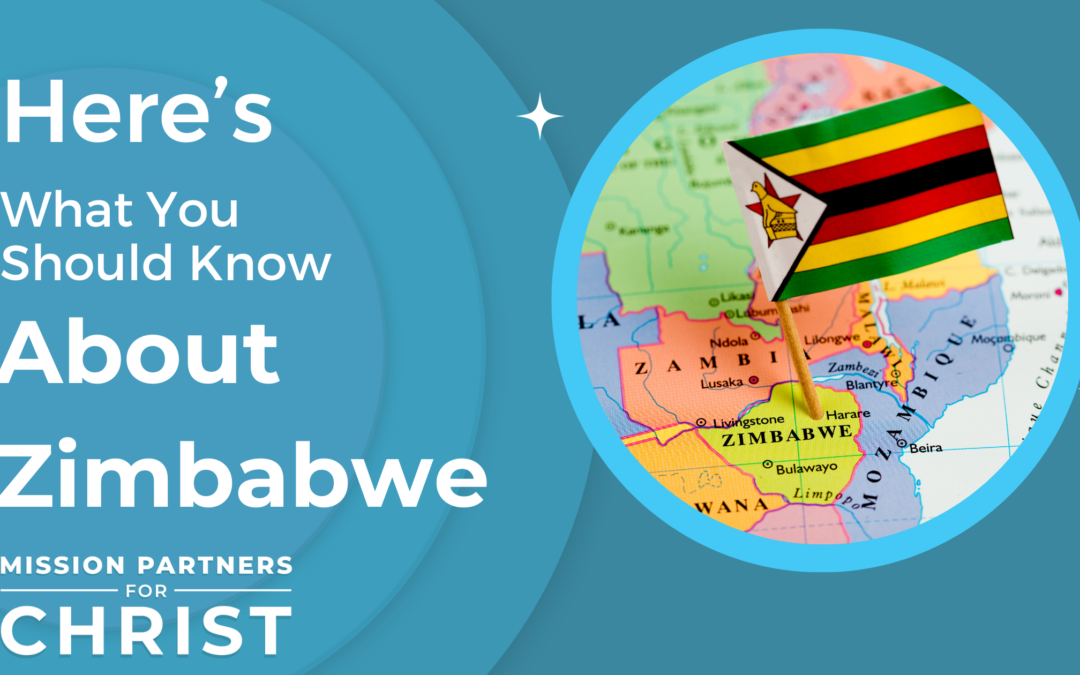
by Mission Partners For Christ | Feb 2, 2024 | Medical Mission Trips
As an individuals driven by faith and compassion, you must have an understanding of the profound impact that missions can have on communities worldwide, such as those that Mission Partners For Christ plans to serve this summer.
Zimbabwe, often referred to as the “Jewel of Africa,” is a nation brimming with potential, challenges, and opportunities. For aspiring missionaries like you, it’s crucial to gain a deep understanding of this unique land, its people, and its culture. It is through learning about the unique charactieristics of this beautiful nation that all of us, who are planning to minister to unreached and underserved Zimbabwe communities can better foster opportunities to share the gospel and help to facilitate relationships between these communities and our local missionary partners.
In the following paragraphs, we’ll delve into the top 5 things you need to know about Zimbabwe to embark on your missionary journey with knowledge, respect, and a heart full of hope.
1. Zimbabwe Has A Long And Rich History
Artifacts dating as far back as The Stone Age have been discovered in Zimbabwe, which means that the nation has been around for a very long time.
scandal and accusationit is thought that the San, who still survive mostly in the Kalahari desert of Botswana, are the last descendants of these original inhabitants of southern and central Africa. They were driven into the desert by Bantu-speaking groups during the long migrations from the north in the course of which the Bantu-speaking peoples populated much of Africa from Lake Chad to present-day South Africa. The first Bantu are thought to have reached Zimbabwe between the 5th and 10th centuries CE. Zimbabwe is home to many stone ruins, including those known as Great Zimbabwe (designated a UNESCO World Heritage site in 1986). Some ruins date from about the 9th century, although the most elaboratebelong to a period after the 15th century and are of Bantu origin.
Source: Brittanica
Over the centuries that followed, colonizing powers such as Portugal and Britain would invade the land in search of precious metals, like gold. So much wealth was found in the land that former Tanzanian president Julius Mwalimu Nyerere dubbed the nation of Zimbabwe to be, “The Jewel of Africa.”
In 1857, Robert Moffat (father-in-law to David Livingstone) met with Mzilikazi, chief of the Ndebel tribe – an offshoot of he Zulu nation, which opened the door to the establishment of the missions organization, “London Missionary Society.”
Zimbabwe became an independent nation on April 18, 1980 under the leadership of President Canaan Banana, who stepped down after years of misconduct and arrests linked to accusations of homosexuality. President Robert Mugabe served multiple terms from 1987-2017. While President Mugabe’s tenure as the leader of the Zimbabwe people was initially seen as progress, over time his authoritarian leadership style has led to many complaints from citizens of human rights abuses. The current president of Zimbabwe is Emmerson Mnangagwa, who succeeded Mugabe in 2017.
You can learn more about Zimbabwe’s history from a letter that President Mugabe wrote for Brittanica in 1981, “Struggling for Nationhood: The Birth of Zimbabwe.”
2. Zimbabwe Has Struggled Economically For Decades
Due to multiple factors such as drought, high inflation rates, and involvement in the civil war of the Democratic Republic of Congo (and the resulting withdrawal of outside economic aid), and more, Zimbabwe has struggled to keep their local economy afloat.
Inflation was rampant: the official government estimate reached nearly 8,000 percent in September 2007 (other, nongovernment estimates were up to several times that figure) before the government’s Central Statistic Office stated that they were unable to continue calculating inflation rates, because of a lack of data; the basic consumer goods needed for the calculations could no longer be found in shops throughout the country. In early 2008, after government calculations had resumed, the official estimate had risen to more than 100,000 percent; by the end of the summer, it had surpassed 10 million percent. Economic problems also included an extremely high rate of unemployment, estimated at some four-fifths of the population and among the highest in the world. Employment did not guarantee financial security though, as the wages earned by those who were employed were unable to keep pace with inflation.
Source: Brittanica
Understandably, as the Zimbabwe economy began to falter, the impact to those who call the country home was severe. Rates of unemployment began to skyrocket, and people became uneasy:
Discontent with the struggling economy and the government led to an unprecedented level of public demonstrations against Mugabe’s administration beginning in 2016.
Source: Britannica
Health became a grave concern for many also.
The average life expectancy averages around 60 years old, and the deteriorating health care system leaves many people without accessible healthcare:
The top three health threats facing the people of Zimbabwe are HIV, tuberculosis (TB), and malaria. These diseases contribute significantly to maternal and childhood illness and deaths. Declining economic conditions and rising costs of living have eroded a health system once known regionally for its well-educated, robust workforce and ability to provide advanced medical care. USAID supports programs to reduce preventable deaths and lessen the disease burden, especially among women and children under five.
Source: USAID
A 2021 Al Jazeera article noted that, even for the wealthiest citizens, healthcare can be out of reach causing them to spend enormous amounts of money seeking healthcare elswhere in the world.
3. The Religious Landscape of Zimbabwe
Zimbabwe’s religious landscape is incredibly diverse. The majority of Zimbabweans adhere to Christianity, with various traditions such as Roman Catholicism, Anglicanism, and various Protestant branches. Additionally, there is a significant population that practices indigenous religions, connecting deeply with ancestral spirits and nature. Islam and other minority faiths also have a presence in this religious tapestry.
Here is a quick breakdown of the various faith of Zimbabwe:
- Protestantism: 69.2%
- Catholicism: 8%
- Other Christian Traditions: 6.9%
- Traditional Faiths: 4.5%
- Islam: 0.7%
- Other Faiths: 0.5%
- No Religion: 10.2%
Source: Wikipedia
The wonderful thing about Christianity being so baked into the Zimbabwe culture is that when Mission Partners For Christ visits Zimbabwe in July 2024, there will already be some understandiing of the gospel we’ll be bringing (even though we’ll be working with unreached communities)! God has been working for a long time to prepare the unreached communities of Zimbabwe to be open to the gospel message, and we’re so excited that God chose to call us to be the ones who get to go!
4. Missions and Partner Collaboration in Zimbabwe Are Central Parts of Her History
Success stories of missionary work in Zimbabwe abound, illustrating the profound impact that partnerships and collaboration can have on communities. Missionaries, in cooperation with local organizations and communities, have been able to address pressing issues such as poverty, healthcare access, and education. These endeavors have led to transformative changes in the lives of Zimbabwean individuals and families, fostering hope, empowerment, and a sense of solidarity.
We’ve already mentioned Robert Moffat earlier in this blog post, but have you ever heard of Charles Daniel Helm and his wife Elizabeth? Together, they served in Matabeleland (now known as Bulawayo, Zimbabwe) for 40 years, starting in 1875. They were so well respected that Charles became an interpreter and an advisor to King Lobengula. You can learn more about their story here.
Missions are still needed in Zimbabwe to ensure that gospel continues to be shared and spread and to work alongside existing organizations that are working to empower Zimbabweans to thrive.
Collaborating with local communities and organizations is not merely an option but a fundamental necessity for effective missionary work in Zimbabwe. The local knowledge and cultural understanding that these partnerships provide are invaluable. Such collaborations also foster trust and mutual respect, key elements for building long-lasting relationships and making a positive impact on the lives of those they seek to serve.
For our medical mission trip this summer, we will be working alongside our missionary partner, FICA (Faith In Community Aiders). FICA’s goal is to come alongside underserved community and make healthcare and education accessible longterm, which sets the community up to thrive and to succeed in their local economic growth.
Zimbabwe stands as a captivating and culturally rich nation, offering both challenges and opportunities for missionaries eager to make a difference.
As you prepare for your missionary journey, remember that Zimbabwe’s people and communities hold the keys to transformative change. By fostering partnerships, respecting local traditions, and approaching this mission trip with humility and empathy, you can contribute to the betterment of lives and the strengthening of bonds.
Not signed up to join us in Zimbabwe? You can learn more and apply here!





